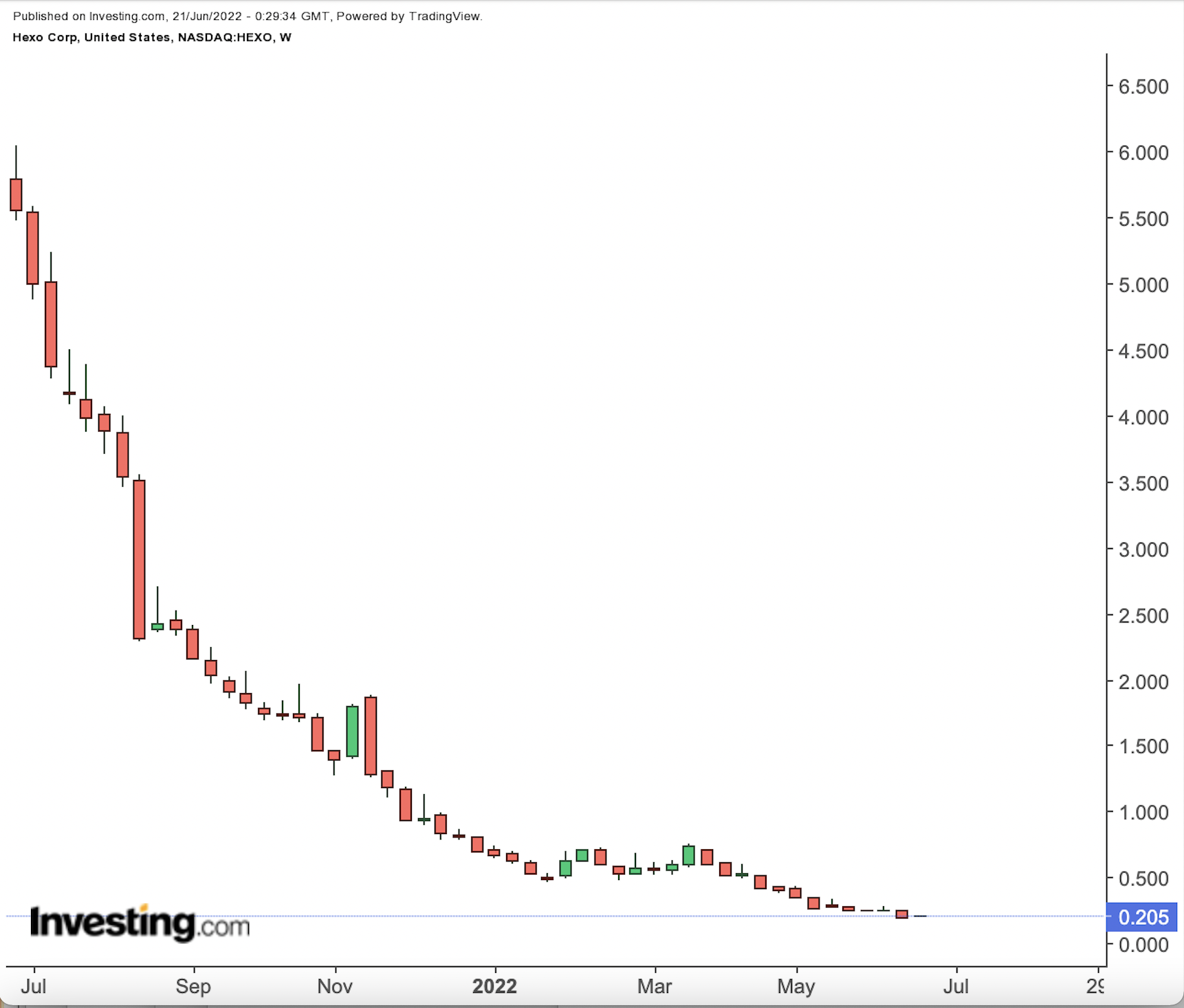Street Calls of the Week
What does it say when Hexo Corp (NASDAQ:HEXO) (TSX:HEXO), the largest Canadian marijuana grower by market share and one of the leading names in the North American cannabis sector, sees its shares drop to a new all-time low in the wake of its latest quarterly earnings when the actual figures are just a small part of the reason?

Perhaps it is yet another indication that the road leading to US federal legalization of the cannabis market, which would swing open the doors to the largest pot market in the world to international players, could soon be strewn with corporate carnage.
Some of the players may very well not have the financial stamina to wait out the federal directive.
Hexo shares plummeted to a never-before-seen low of US$0.1959 on the NASDAQ last Wednesday after reporting third-quarter earnings that severely missed analysts’ expectations.
The Quebec-based company’s quarterly revenue hit C$45.6 million (US$35.2 million), which represents a 101% gain over the same quarter in the previous year, but 14% below the last quarter. The drop was attributed, in part, to tough competition within the Canadian market.
Among the highlights of the earnings report was a C$146.6 million (US$113.2 million) loss for the quarter, which included an C$83.1 million (US$64.2 million) impairment charge related to a closure of a production facility and a C$14.6 million (US$11.3 million) inventory write-down.
The bottom line was an C$18.4 million (US$14.2 million) adjusted-EBITDA loss, which was substantially larger than the C$10.8 million (US$8.3 million) loss reported in the same quarter one year earlier.
But it wasn’t just the financials that contributed to the drop in share price.
Hexo also announced that it was withdrawing its previous guidance in its entirety with respect to what it referred to as “operational synergies and incremental increases to cash flows for the 2022 and 2023 financial years."
The statement added:
“… there can be no assurance that the company will in the future decide to provide any guidance whatsoever with respect to any operational, financial or other measure.”
Then, two days after unveiling its latest earnings, Hexo announced, that a wholly-owned subsidiary, Zenabis Global, had filed for creditor protection.
According to Hexo’s statement, the protection petition filed in Quebec Superior Court is limited to the Zenabis Group.
Hexo bought Zenabis in 2021 for C$235 million (US$181.5 million).
If that wasn’t enough upheaval, investors are also aware that, in April, Hexo named a new CEO—its third in six months.
Charlie Bowman was appointed acting president and CEO, replacing Scott Cooper, who had been named to the post last October. Cooper had replaced Hexo co-founder Sebastien St-Louis who left the company in a major strategic reorganization of the company.
Previous to his appointment in April, Bowman held the title of acting chief operating officer of Hexo USA.
Shares of Hexo regained a bit of their recent slippage by the end of last week, closing last Friday before the long weekend in the US at US$0.205.
In the last year, Hexo stock has lost more than 96% of its value.
